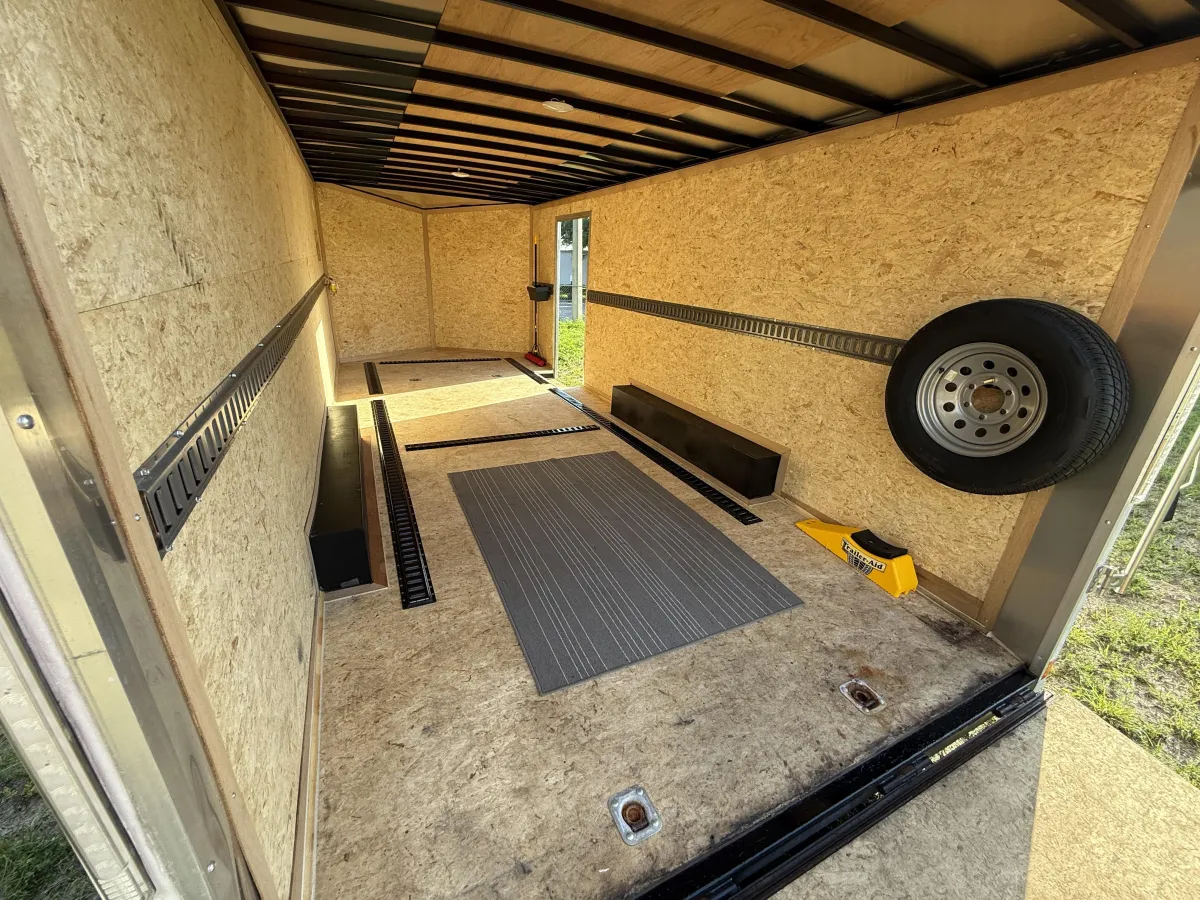
How to Properly Secure Your Load with E-Track and Tie-Downs
How to Properly Secure Your Load with E-Track and Tie-Downs
Whether you're hauling a car, motorcycle, tools, or construction materials, properly securing your load is critical for safety and legal compliance. At Central Florida Trailer Rentals, we equip many of our trailers with E-Track systems, D-rings, and multiple tie-down options to help you keep everything locked in place.
In this guide, we’ll walk you through how to safely secure your load using the E-Track system and the most common trailer tie-down tools.

What is E-Track?
E-Track is a heavy-duty rail system installed along the floors and walls of enclosed trailers. It provides multiple anchor points for securing cargo at various angles and heights.
E-Track allows for a customized securement setup—especially helpful when hauling differently sized or shaped items.
Step-by-Step: Securing with E-Track
1. Position the Load
Cars or motorcycles: Center them with the weight slightly forward (60/40 front-to-back split).
Cargo/materials: Place heavy items toward the front of the trailer and distribute side-to-side evenly.
2. Select Anchor Points
Use both wall and floor E-Track slots when possible. This prevents side-to-side and forward movement.
Visual Aid: Strap angles (Use an X-pattern when possible—crossing straps from opposite sides for diagonal tension.)
3. Choose the Right Tie-Downs
E-Track ratchet straps: Ideal for cars, heavy items, or equipment.
Cam buckle straps: Better for lighter cargo or fragile items.
E-Track fittings: Ensure all hooks or ends snap securely into the E-Track rails.
4. Tighten the Load Down
Use a ratchet strap to eliminate slack—firm, but not crushing pressure.
Pull each strap, then bounce the cargo slightly to see if it shifts.
Re-check strap tension after 10–15 minutes of driving.
Most of our trailers come with built-in D-rings, triangle rings, and rounded rings on the deck.
Best Uses: - Triangle rings: Great for crisscrossing when securing vehicles. - Rounded rings: Offer soft angles for hauling wrapped goods or boxed items.
Tie-Down Tips:
Always strap items at 4 contact points minimum.
For cars: One strap on each corner, using frame-mounted or tire-mounted securements.
For appliances: Use corner braces or blankets to reduce vibration damage.
Visual Aid: Car Tie-Down Example
(Image idea: A vehicle strapped with 4 yellow E-Track straps, crossing from floor tracks at front/rear corners.)
Common Mistakes to Avoid
Using rope or bungee cords (not DOT approved)
Attaching to weak parts of the trailer (like fenders)
Strapping over moving parts (e.g., suspension)
Forgetting to check strap tension during long trips
Legal & Safety Considerations
Florida law requires all loads to be adequately secured to prevent shifting or falling. Violations can lead to traffic stops or fines—even if nothing actually falls out.
A secure load protects your cargo, trailer, tow vehicle, and everyone else on the road.
Final Checklist Before You Hit the Road:
Load is balanced and centered
Straps are tight with no slack
E-Track fittings are locked in place
Safety chains and brake cables are connected
All tie-down points inspected for damage or wear
Need Help or Have Questions?
When you rent from Central Florida Trailer Rentals, we include: - E-Track straps (x4)
- Tie-down rings (triangle, rounded, D-ring)
- Walkthrough of trailer tie-down features
Call or text us at (321) 467-7070 for immediate assistance or safety tips.
Stay safe and haul smart!
Ramsey Pantaleon
Owner/Operator
Central Florida Trailer Rentals
